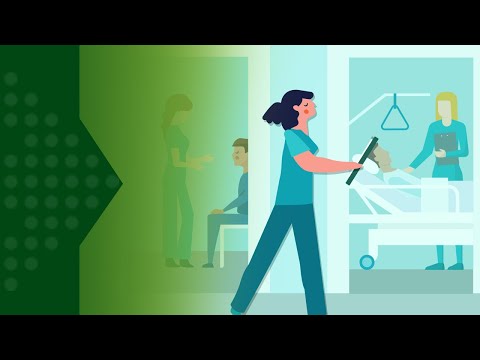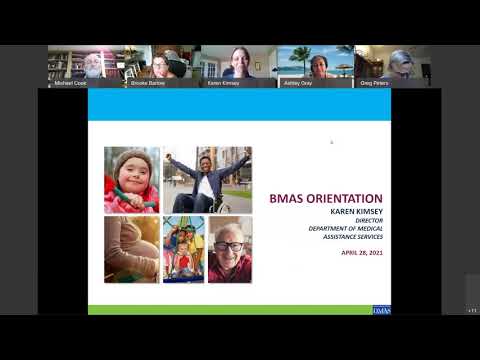What Pays More: Medical Assistant or Billing and Coding?
Contents
- What Pays More: Medical Assistant or Billing and Coding?
- The Pros and Cons of a Career in Medical Assisting
- The Pros and Cons of a Career in Billing and Coding
- The Differences Between Medical Assistants and Billing and Coding Professionals
- Which One is Right for You: Medical Assistant or Billing and Coding?
- What Does the Future Hold for Medical Assistants and Billing and Coding Professionals?
- How to Become a Medical Assistant
- How to Become a Billing and Coding Professional
- The Best Medical Assistant Programs
- The Best Billing and Coding Programs
Find out which profession is more lucrative: medical assistant or billing and coding. Get job descriptions, salaries, and career outlooks for each profession to help you make an informed decision.
Checkout this video:
What Pays More: Medical Assistant or Billing and Coding?
In the medical field, there are a variety of positions that offer different levels of pay. If you’re wondering whether a career as a medical assistant or billing and coding specialist is right for you, it’s important to compare the average salaries of each position.
According to the Bureau of Labor Statistics, the median annual salary for medical assistants was $34,800 in 2018. Billing and coding specialists, on the other hand, earned a median salary of $40,350 that same year. While there is a difference in pay between these two positions, both offer relatively good salaries and are growing at faster-than-average rates.
The Pros and Cons of a Career in Medical Assisting
Medical assistants are in high demand due to the ever-growing healthcare industry. According to the Bureau of Labor Statistics, employment of medical assistants is expected to grow by 29% from 2016 to 2026, which is much faster than the average for all occupations. But what does a medical assistant do? And is it a good career choice?
Medical assistants are multi-skilled health professionals who perform both administrative and clinical tasks in doctors’ offices, hospitals, outpatient clinics, and other healthcare facilities. They are an important part of the healthcare team and often act as a patient’s first point of contact with the healthcare system.
The duties of a medical assistant vary depending on state laws and the type of facility in which they work, but they typically include taking and recording patient vital signs, updating patient medical histories, scheduling appointments, answering phone calls, handling correspondence, filing insurance claims, and coding medical charts. Medical assistants may also assist with minor office surgeries, such as removing sutures or changing dressings.
So what are the pros and cons of a career in medical assisting? Here’s what you need to know:
Pros:
-The job outlook for medical assistants is excellent. As mentioned above, employment is expected to grow by 29% from 2016 to 2026.
-Medical assistants can find work in a variety of settings, including doctors’ offices, hospitals, outpatient clinics, and other healthcare facilities.
-The duties of a medical assistant are varied and can include both administrative and clinical tasks.
-Medical assistants usually work regular business hours. Some may be required to work evenings or weekends depending on the needs of their employer.
-Many medical assistants receive on-the-job training. Some programs also offer formal education and training programs that last anywhere from six months to two years.
Cons:
-The pay for medical assistants is relatively low. The median annual salary for medical assistants was $32,480 in 2016, according to the Bureau of Labor Statistics. In comparison, the median annual salary for billing and coding specialists was $36,810 in 2016. So if you’re looking for a higher paying job, billing and coding may be a better option.
The Pros and Cons of a Career in Billing and Coding
If you’re wondering whether a career in medical billing and coding is right for you, it’s important to weigh the pros and cons. On the plus side, this is a stable and growing field with good job prospects. In addition, medical billing and coding specialists often enjoy good pay and benefits.
On the downside, billing and coding can be repetitive and sometimes challenging work. In addition, you may have to deal with resistant insurance companies and angry patients. If you’re thinking of pursuing a career in medical billing and coding, be sure to do your research so you know what you’re getting into.
The Differences Between Medical Assistants and Billing and Coding Professionals
There are a few key differences between medical assistants and billing and coding professionals. Medical assistants generally have more direct contact with patients, whereas billing and coding professionals often work more behind the scenes. Medical assistants may be responsible for taking patients’ vital signs, while billing and coding professionals will typically be responsible forinputting patient data into a system. Billing and coding professionals may need to have a more in-depth knowledge of insurance plans and reimbursement rates, while medical assistants may need to have a more thorough understanding of clinical procedures. Ultimately, both medical assistants and billing and coding professionals play important roles in the healthcare industry.
Which One is Right for You: Medical Assistant or Billing and Coding?
The medical field is a great place to start your career. It is a stable industry with many opportunities for growth. But what are the best medical jobs? If you are looking for a job in the medical field, you may be wondering if you should become a medical assistant or a billing and coding specialist.
Both medical assistants and billing and coding specialists are in high demand. They both play important roles in the healthcare industry. But which one is right for you?
Here are some things to consider when making your decision:
-Do you want to work directly with patients?
-Do you want to work behind the scenes?
-Do you want a job that is mostly office-based or one that involves some travel?
-Do you want a job that is mainly administrative or one that involves some patient care?
-Do you want a job that pays more?
Based on these factors, let’s take a closer look at medical assistant vs billing and coding salaries.
What Does the Future Hold for Medical Assistants and Billing and Coding Professionals?
In recent years, there has been an increasingly common trend of medical assistants and billing and coding professionals leaving their respective field for other opportunities. While the reasons for this jump vary from person to person, it often comes down to one key factor: money. Medical assistants and billing and coding professionals are paid relatively low wages in comparison to other medical professions, such as nurses and doctors. This salary discrepancy can be a major motivation for many individuals to pursue other career paths.
However, it is important to consider the future when making a decision about your career. The Bureau of Labor Statistics predicts that both medical assistant and billing and coding positions will experience above-average growth in the coming years. In fact, medical assistant positions are expected to grow by 29% between 2019 and 2029 – much faster than the average for all occupations. Billing and coding positions are expected to grow by 22% over the same time period. This growth is largely due to an aging population and an increase in demand for healthcare services.
While salary is an important factor to consider when choosing a career, it should not be the only factor. Job satisfaction, work/life balance, and job security are all important factors that should be taken into account when making a decision about your future.
How to Become a Medical Assistant
There are many important decisions you will make in your healthcare career. One of the most important is choosing the right training program to become a medical assistant.
The first step is to research and compare programs. You want to find a quality program that is accredited and will prepare you for the exams you need to become certified. The next step is to decide whether you want to become a medical assistant or a billing and coding specialist. Both are important roles in the healthcare industry, but they have different pay scales.
Medical assistants typically earn more than billing and coding specialists. According to the Bureau of Labor Statistics, medical assistants earned a median salary of $33,610 in 2017, while billing and coding specialists earned a median salary of $30,530. However, it is important to note that salary varies based on experience, education, location, and other factors.
If you are looking for a career in healthcare that pays more, medical assisting may be the right choice for you. With the right training and certification, you can start your new career in this growing field.
How to Become a Billing and Coding Professional
Whether you’re a recent grad or looking to change careers, the medical billing and coding field offers numerous opportunities. The first step is to understand what medical billing and coding is and what the job entails.
Medical billing and coding is the process of translating medical procedures and diagnoses into codes that are used by insurance companies to process claims. As a Medical Billing and coding professional, you will need to have a strong understanding of medical terminology and be able to accurately code procedures and diagnoses.
There are a variety of ways to become a medical billing and coding professional. Many community colleges offer certificate programs that can be completed in as little as one semester. There are also online certificate programs that offer flexibility for those who want to study at their own pace.
Once you have completed a certificate program, you will need to pass an industry-recognized certification exam, such as the Certified Professional Coder (CPC) exam offered by the American Academy of Professional Coders (AAPC). Once you have passed the exam, you will be eligible for entry-level positions in medical billing and coding.
The Best Medical Assistant Programs
The best medical assistant programs prepare students for a career in the medical field. Medical assistants work alongside physicians and other medical professionals to provide patient care. They perform administrative and clinical tasks, such as scheduling appointments, taking medical histories, and transcribing medical records.
Medical assistants must be able to multi-task and work well under pressure. They must be detail-oriented and have excellent communication skills. Most medical assistants have an associate degree from an accredited community college or vocational school. Some states require medical assistants to be certified or registered.
Billing and coding is another popular career choice for those interested in the healthcare field. Billing and coding specialists play a vital role in the healthcare industry by coding and billing insurance companies for patient treatments and procedures. Like medical assistants, billing and coding specialists must be detail-oriented and have excellent communication skills. Most billing and coding specialists have an associate degree from an accredited community college or vocational school. Some states require billing and coding specialists to be certified or registered.
So, which pays more: medical assistant or billing and coding? According to the Bureau of Labor Statistics, the median annual salary for medical assistants is $33,610, while the median annual salary for billing and coding specialists is $40,350.
The Best Billing and Coding Programs
Medical billing and coding is a rapidly-growing occupation with many opportunities for advancemen







